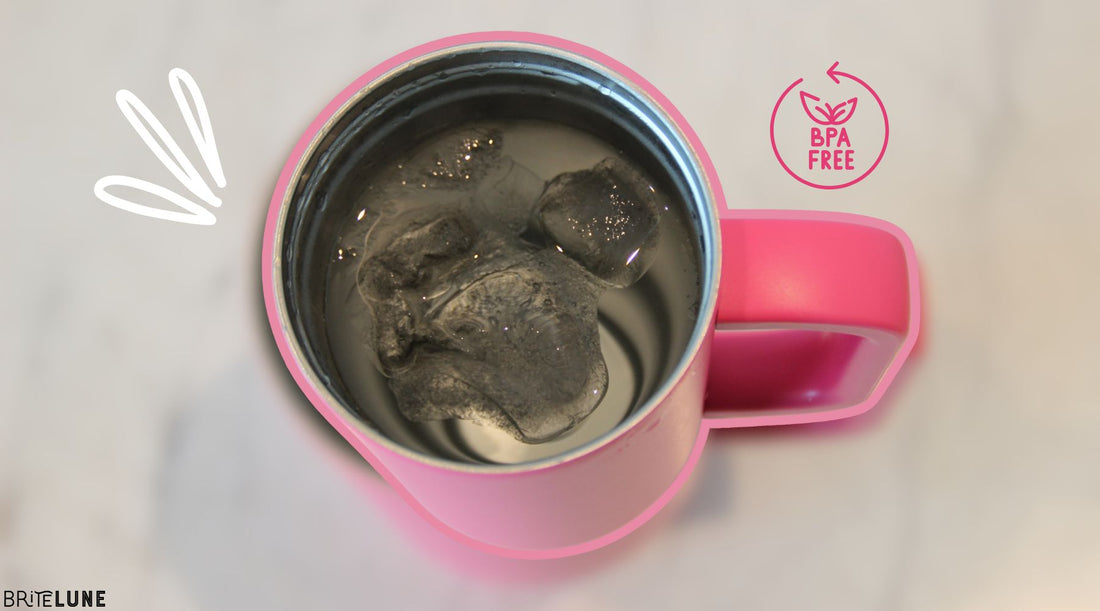
How to Avoid BPA in Your Water Bottle
Staying hydrated is essential for overall health, but it's equally important to ensure that the containers you use are safe. Bisphenol A (BPA) is a harmful chemical commonly found in certain plastics, including some water bottles. Exposure to BPA has been linked to various health issues, such as hormonal disruptions and increased risk of certain cancers. What is BPA, and what are the concerns about BPA?
What Is BPA and Why Should You Avoid It?
BPA is an industrial chemical used in the production of polycarbonate plastics and epoxy resins. These materials are often found in containers that store food and beverages, including water bottles. Studies have shown that BPA can leach into liquids, especially when exposed to heat or wear, leading to potential health risks.
How to Choose BPA-Free Water Bottles
When selecting a water bottle, it's crucial to prioritize safety by choosing BPA-free options. Here are some tips to help you make the right choice:
1. Check the Material
Look for bottles made from BPA-free materials. The safest options include stainless steel, glass, and BPA-free plastics. BriteLune’s Fleur 40 oz Stainless Steel Vacuum Insulated Travel Tumbler is an excellent choice because it is made from premium 18/8 stainless steel, which is BPA-free, durable, and resistant to leaching harmful chemicals.
2. Know Your Plastic Recycling Codes
Plastic bottles often carry a recycling number at the bottom, which can tell you whether they contain BPA. Plastics marked with codes #3 (polyvinyl chloride), #6 (polystyrene), and #7 (other plastics) may contain BPA. To ensure safety, avoid these plastics. Environmental Working Group
3. Consider Glass or Stainless Steel Bottles
Glass and stainless steel bottles are inherently free from BPA and are great alternatives to plastic. They are also more durable and won't retain odors or flavors from previous beverages. BriteLune’s tumbler offers all these benefits, including a 2-in-1 multifunctional lid for both straw and sip drinking options.
4. Look for Clear BPA-Free Labels
Many manufacturers label their products as BPA-free. While this is a good indicator, make sure to read the fine print. Sometimes, even BPA-free plastics can contain harmful substitutes. Always choose trusted brands that offer transparent product details and certifications.
5. Avoid Heating Plastic Bottles
Heating plastic bottles, such as placing them in the microwave or dishwasher, can cause BPA to leach into your drink. If you prefer using plastic bottles, ensure they are only used in their intended conditions. For added peace of mind, consider using glass or stainless steel bottles instead.
Additional Tips for Safe Hydration
- Regularly Inspect Your Bottles: Check for signs of wear and tear, such as cracks or scratches, which can harbor bacteria and may lead to chemical leaching.
- Proper Cleaning: Regularly clean your water bottle with warm, soapy water to prevent bacterial growth. Ensure it's thoroughly dried before refilling.
- Avoid Storing Bottles in Hot Environments: Do not leave your water bottle in hot cars or direct sunlight, as heat can accelerate the leaching of chemicals.
The Benefits of BPA-Free Bottles for Hydration
Choosing BPA-free bottles is essential for ensuring that your hydration habits contribute to your well-being. BPA-free water bottles are designed to be non-toxic and are a safer option for both short and long-term use. With alternatives such as stainless steel and glass, you also gain additional benefits like better temperature retention, which keeps your water cool throughout the day without contamination from chemicals.
BriteLune’s Fleur tumbler offers all these benefits, including a 2-in-1 multifunctional lid for both straw and sip drinking options. Whether you need to carry water, coffee, or tea, the tumbler is an ideal companion for those who are conscious about their health and hydration.
Prioritize Your Health by Avoiding BPA
When it comes to choosing a water bottle, always opt for BPA-free options to ensure that you’re drinking from a safe, non-toxic container. Whether you choose stainless steel, glass, or BPA-free plastic, taking this step will protect you from potential health risks associated with BPA. For those seeking a stylish, durable, and safe hydration solution, the BriteLune Fleur 40 oz Stainless Steel Vacuum Insulated Travel Tumbler is a perfect choice.
Enjoy 20% off your first order with code: BRITE20.
Further Reading
What is BPA? and Why Does it Matter- Learn about the dangers of BPA, its potential health risks, and why it’s important to avoid exposure.
Does Stainless Steel Contain BPA? - Find out if stainless steel is a safer alternative for your water bottle and how it helps in avoiding harmful chemicals.
Relevant links
- Are Plastic Takeout Containers Harming Your Heart Health? Here's What New Research Reveals: Recent research indicates that chemicals leaching from plastic containers, including BPA, can damage the heart and increase the risk of cardiovascular disease.
- Eating from Plastic Takeout Containers Can Cause 'Extensive' Heart Damage, Increase Risk of Cardiovascular Disease: A study found that ingestion of chemicals from plastic containers alters gut microbiota and induces heart muscle damage, highlighting the dangers of BPA exposure.
- 7 Everyday Kitchen Items You Didn't Realize May Be Harmful to Your Health: This article discusses common kitchen items, including plastic containers, that may expose you to harmful chemicals like BPA.
- What Is BPA and Is It Cause for Concern?: An overview of BPA, its uses, and the health concerns associated with exposure.
- The Facts About Bisphenol A, BPA: WebMD provides information on BPA, its potential health effects, and safety considerations.



